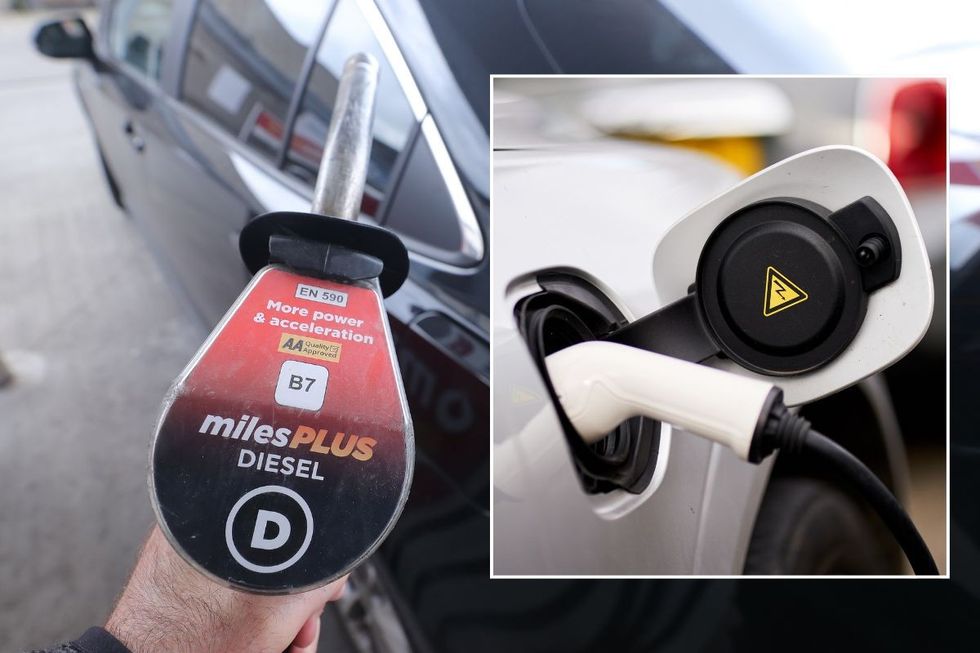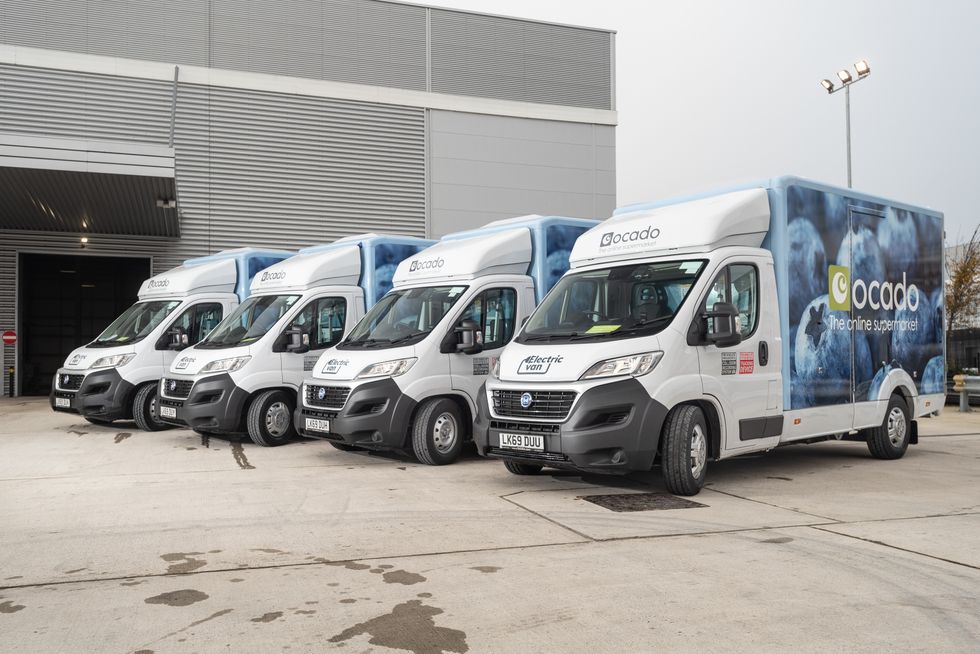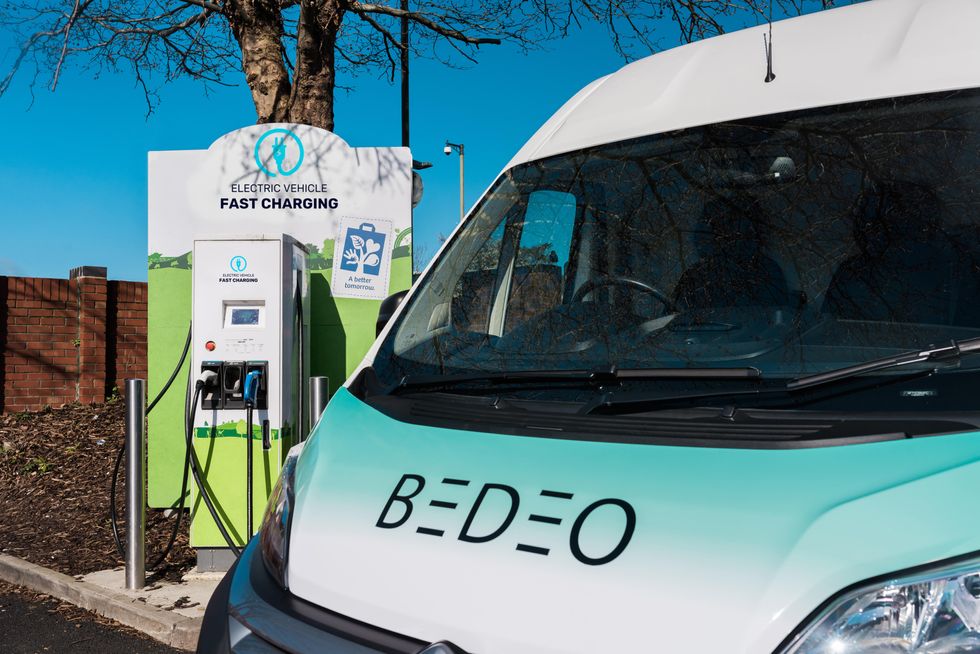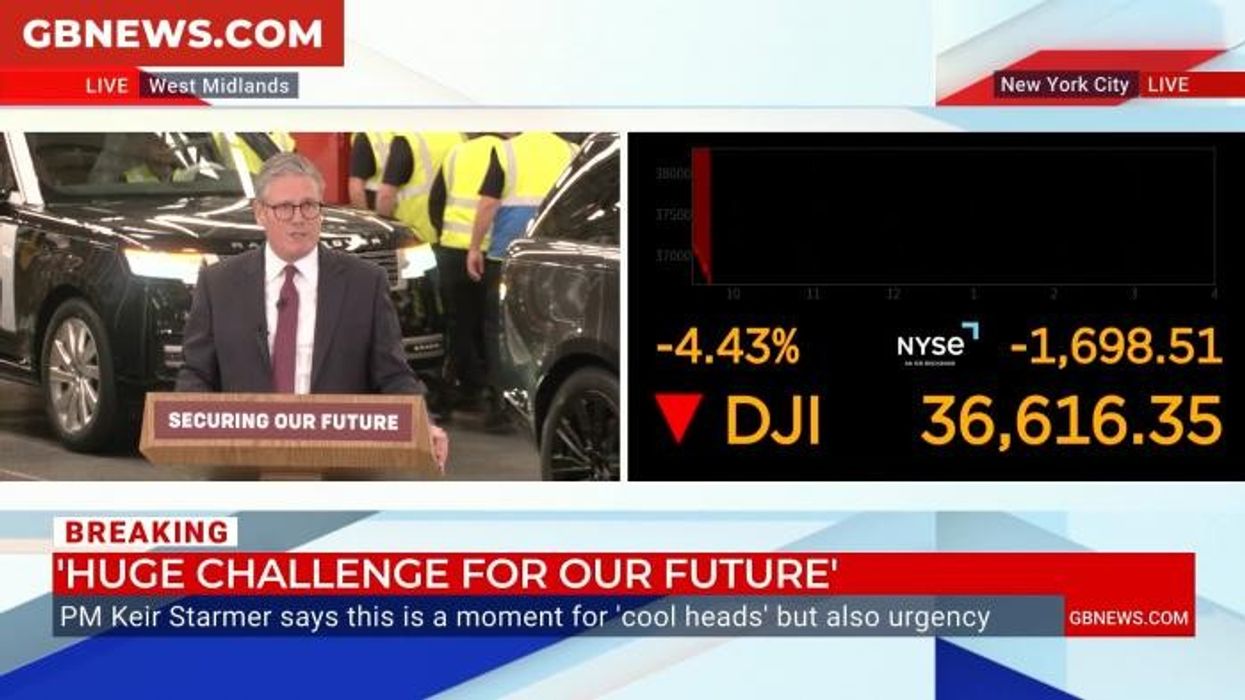Diesel vehicles threaten 2030 car ban deadline amid calls for rollout of electric range extenders

'Electric vans just don't have the same payload as diesel - it's not even close'
Don't Miss
Most Read
A UK-based electric vehicle company has issued a stark warning to the Government that the industry risks missing crucial zero emission targets without immediate intervention.
In a formal open letter, Bedeo, which specialises in large van electrification and retrofit technology, highlighted serious concerns about the industry's ability to meet the UK's Zero Emission Vehicle mandate and net zero commitments.
The company has called for urgent policy changes to address the growing gap between current adoption rates and ambitious Government targets.
The appeal comes as fleet operators continue to face significant barriers to electrification, including payload limitations, range concerns and prohibitive costs.
Do you have a story you'd like to share? Get in touch by emailing motoring@gbnews.uk

Experts warn that many businesses are unable to switch from diesel to electric because of costs and battery ranges
|GETTY
The current market share for large battery-electric vans remains strikingly low, with BEVs in the 3.5-4.25 tonne category representing just 0.5 per cent of the market.
Even more concerning, BEVs over 3.5 tonnes are at 5.3 per cent - lower than 2023 levels.
Bedeo forecasts that by 2030, even the most environmentally committed fleet owners will struggle to convert more than 50 per cent of their vehicles to zero emissions.
This limitation stems from persistent challenges with range capabilities, cost barriers and payload restrictions that continue to hamper widespread adoption.

Fleet experts are warning that the 2030 and 2035 deadlines could be missed without Government intervention
|BEDEO
This stark reality stands in direct contrast to the UK's Zero Emission Vehicle mandate, which requires 70 per cent of new vans sold by 2030 to be zero emission.
Further complicating matters is the Prime Minister's announcement in April 2025 that all new diesel van sales must end by 2035.
Osman Boyner, founder and CEO of Bedeo, warned: "Electric vans just don't have the same payload as diesel - it's not even close.
"Fleet managers tell us they're ready to convert 60 to 70 per cent of diesel vans, but not until cost and performance improve. Today, they're ready for range extender and retrofit, but they need Government support."
A Bedeo RE-100 Range Extender delivers more than 100km of fully electric driving per charge - sufficient for most urban delivery cycles.
This technology retains the original diesel engine and performance while providing significant environmental benefits, although payload restrictions remain an issue, prompting Bedeo to lobby for legislative changes.
In its open letter, BEDEO outlines specific policy changes needed to support retrofit and hybrid electrification adoption, including ensuring that range extender technologies are included in Alternative Fuelled Vehicle grant programmes.
It is also requesting licence weight tolerance adjustments to include range extender vehicles in the 4.25 tonne weight limit and formal recognition of retrofit range extender solutions in official net zero pathways.
LATEST DEVELOPMENTS:
- Major car brand calls for 'accessible pricing' to help Britons ditch petrol and diesel for electric
- M53 traffic: Drivers warned of hours-long delays after 'serious collision' prompts police investigation
- Drivers slapped with unfair parking fines from 'broken ticket machines' as MP demands urgent law changes

Bedeo is calling for regulatory changes to allow range extenders
|BEDEO
The company has written to multiple government officials, including the Secretary of State for Transport, Heidi Alexander and Energy Security Secretary Ed Miliband.
Boyner said: "The logistics industry is the backbone of the UK economy. If the UK wants to lead on decarbonisation, we need pragmatic and scalable solutions now and retrofit is one of the most impactful tools we have to reduce emissions without delay or disruption."











